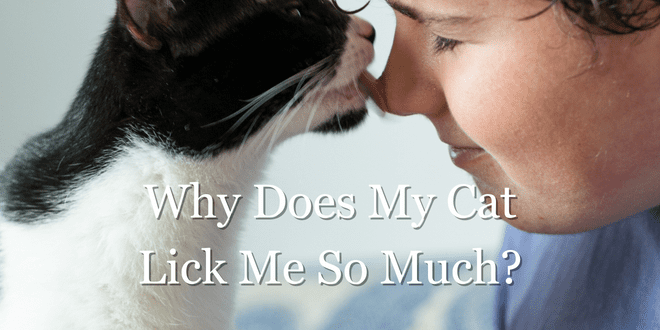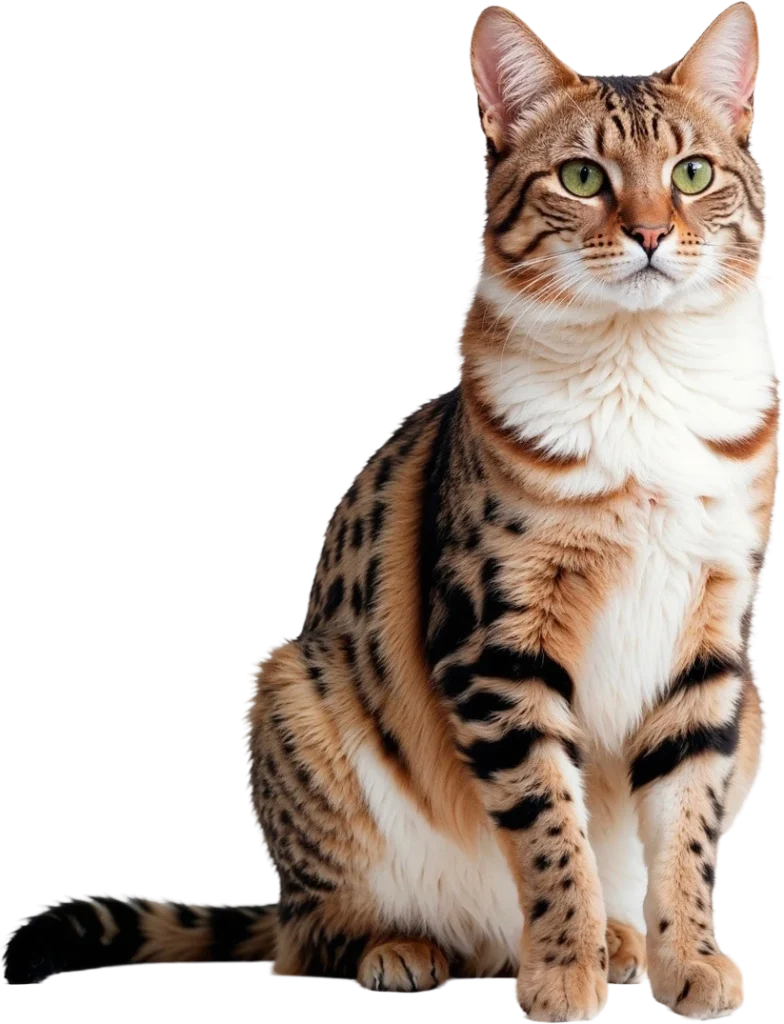
Oh, the cat’s tongue. It’s as cute as can be when it’s peeking out just a bit from the cat’s mouth as he drinks water or delicately groom. It’s small and pink and so adorable. Yet, when the cat’s tongue starts licking you, that little sandblaster seems as if it could take off several layers of skin.
Licking serves many social and practical functions:
- It’s how cats remove meat from bones
- Licking is important for coat maintenance
- Licking removes the scent of prey after a meal
- It’s how mothers clean their kittens and help them eliminate their waste
- In a multicat environment or in a cat colony, allogrooming helps create a familiar group scent
- Licking is a way cats cool themselves
- Licking is used for stress relief
- Licking helps remove external parasites
- Licking can be a social behavior
That’s just a few of the ways that cute little tongue is kept busy. In a previous article I discussed in detail why cats groom so much but in this post I want to cover the licking that cats tend to do toward family members.
When your cat licks you, is it the feline equivalent of a kiss? Is the cat marking you as his property? Well, let’s examine some of the reasons cats lick us.
Cats Lick to Strengthen Social Bonds
Cats who are familiar and friendly will often lick each other. This behavior helps the bond grow stronger and the exchange that takes place helps create a familiar group scent. Cats depend on scent as an important means of identification. When your cat licks you, it’s also a way of strengthening the bond and showing affection much the same way in which you display toward him by petting.
Your Cat May Lick You Due to Anxiety
Some cats lick and groom themselves to relieve anxiety and in some cases, it even results in bald patches. Your cat may also lick you as a way of self comforting. If you notice areas of thinning hair or bald spots on your cat, talk to your veterinarian because there may be an underlying medical cause or your cat may be experiencing stress overload. When the cat licks you, if his body posture appears tense or if the licking goes on for an extended period, that may indicate an attempt to self-soothe.
Going Back to Kittenhood
Your cat may lick you while kneading his paws against you. The cat may also nuzzle close to your skin and purr. This is a throwback to kittenhood when the little kitten would nurse. This behavior displayed is an indication that your cat feels comfortable, safe and secure with you.
Some cats, especially those who were weaned too early or abruptly may engage in excessive licking and also may suckle on soft objects, your clothing, or even parts of your body such as your earlobes.
When Your Cat Licks You it Can be a Bit Painful
A cat’s tongue has backward-facing barbs on it that are made of keratin. These barbs help the cat rasp meat from the bones of captured prey. The barbs are also important in grooming because they help the cat remove dead hair, debris and parasites from the fur. While these barbs are certainly very useful, they create that scratchy feeling when your cat licks you. If the cat remains fixated on licking you in the same spot repeatedly, it can definitely become uncomfortable.
Reducing How Much Your Cat Licks You
If your cat is licking as a self-soothing behavior (whether he is licking you, a companion cat or himself) then it’s important to identify the cause of the stress. If you have a multicat household, look at the relationships between the cats and see if there’s an issue that needs to be addressed. You may need to increase vertical territory, provide more resources in more locations and work on helping the cats form a peaceful co-existence.
There are many other causes of stress and some are subtle and easy for human family members to miss. It’s time to examine your cat’s everyday life to see whether there are stress triggers in the household causing him to lick so much.
Provide more enrichment and outlets for energy. Engage your cat in interactive play sessions and also provide opportunities for solo play. Offer food puzzle toys so your cat has positive forms of distraction to keep busy.
Use Distraction
You can probably tell when your cat is getting ready to start licking you. There may be a typical position you get in that becomes inviting to him. Learn to recognize the early signs so you can distract your cat with a toy. You can let your cat cuddle close to you but be ready to place an inviting toy or small pillow between the two of you.
Playtime is a confidence-building activity so when you first notice the signs of impending licking behavior, engage your cat in an interactive play session. Successfully capturing “prey” helps change his mindset from needy to confident.
Help your cat remain occupied and happy when you aren’t available to do interactive play sessions by making sure he has fun and interesting opportunities for solo play. puzzle feeders are a great way to keep a cat entertained, challenged and when he succeeds, he gets a food reward for all that good work.
Tweak Your Cat’s Environment
If the licking is due to stress, boredom or separation issues, you can make some additions to keep your cat’s environment more stimulating. Place a cat tree near a window so your cat can watch the outdoor activity. If it’s practical, place a bird feeder outside the window for some reality cat TV.
Stay Calm and Positive With Your Cat
When your cat licks you too much it definitely can hurt and it can be easy to lose your patience. Don’t damage the bond you share by shoving him away, yelling, or hitting. Develop a positive and constructive game plan that starts with determining why your cat is licking you so you can come up with a loving, kind and effective solution.
Need More Information?
If your cat is excessively licking, whether it’s self-directed or toward others, a veterinary check-up is needed to rule out any underlying medical issue.
For more information on cat behavior and training, refer to the the best-selling books by Pam Johnson-Bennett. Pam’s books are available at bookstores and online. We’ve included Amazon associate links here on our site.



